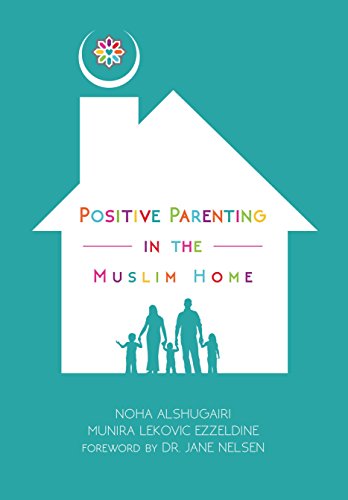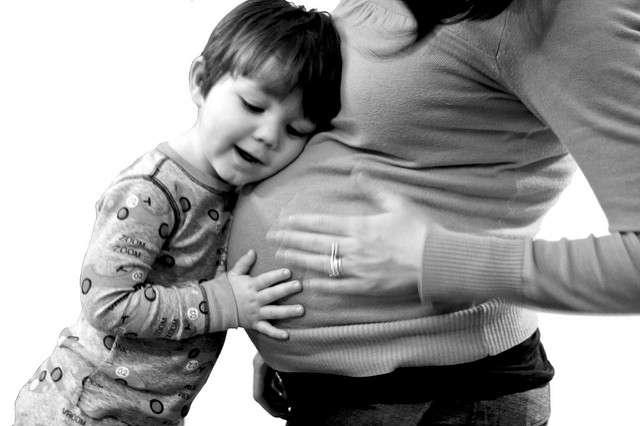Munira Ezzeldine and Noha Alshugairi, American Muslim counselors, educators, and moms, have published a parenting book for Muslim parents – “Positive Parenting in the Muslim Home”. At a time when Muslim parents in America are struggling to help their children cope with the stresses of rising Islamophobia and a sense of dis-empowerment in Trump’s America, this book comes with well-researched advice on how to get through every phase of parenting.
It is based primarily on the Positive Discipline philosophy, which seeks to teach children to become responsible and respectful members of their communities. altM interviewed Munira Ezzeldine to learn more about the book, and how the authors believe it can be an invaluable resource for Muslim parents.
altM: What distinguishes this parenting book from the thousands of others on the shelves right now?
Munira: This book speaks to the practical experiences of Muslim families. It is not a theoretical book of lofty ideals, rather it is full of concrete examples and discussions from which parents can learn to feel empowered along their parenting journey. We discuss many of the real struggles of Muslim parents. This is the book I wish I had when I first became a parent. I would have known what to expect as my kids grew older and what I needed to do to parent effectively.
altM: How do you parent differently from your own parents?
Munira: My parents did the best they could with what they knew at the time. As immigrant parents, their parenting priorities were focused on livelihood and safety. They didn’t read books about parenting, but when I became a parent I read books and studied psychology. I wanted to be intentional about my parenting and I think that is what is different for many second-generation American Muslim parents.
altM: What impact do you hope this book will have on American Muslim readers?
Munira: My hope is that this book will nurture strong parent-child relationships within every Muslim family. I believe that the positive daily interactions that parents have and the healthy family dynamics that are created in Muslim homes will lead to a strong community of people both individually and collectively and this will have a ripple effect on the world. We need more peace and love in the world and this starts in our homes.
altM: You encourage readers to set long-term parenting goals, and to write down the characteristics they would like to see their children exhibit as adults. What are your parenting goals, and which characteristics would you write down in this list?
Munira: My parenting goals are to raise confident and compassionate children with strong moral compasses. I hope for my kids to be: critical thinkers, spiritually grounded, hard workers, seekers of knowledge, loving, focused, intentional, interesting human beings to talk to….I could go on and on but these are the first ones that come to mind.
altM: What type of parenting (authoritarian, permissive or authoritative) do you sense is most predominant within the American Muslim communities?
Munira: I see all types of parenting dynamics in American Muslim homes and the one dynamic that is most concerning is the dance between being permissive—because they want their children to love them – but when it comes to expectations parents are authoritarian and rigid. American Muslim parents struggle with wanting to control their kids and wanting their kids to like them. This leads to chaotic family structures where parents and kids are confused.
altM: You have created this framework around the Positive Discipline parenting philosophy. How have you altered that framework to fit it for American Muslim families in particular?
Munira: We haven’t had to alter the framework because it is implicitly compatible with Islam. The values and ethics of Islam are found within the Positive Discipline framework. We were able to present the congruence of this parenting philosophy with the ethos of Islam. I believe the authoritative approach to parenting captures the spirit of Islamic parenting.
altM: One of the primary premises of the Positive Discipline philosophy is that punishment does not yield positive results. You have noted that many second-generation American Muslims have a much more negative view towards punishment than their parents. Do you find this has led to confusion about the optimal parenting style?
Munira: Since many second-generation parents are opposed to punishment they are actually motivated to learn about other parenting styles. They may be confused as to how to parent without punishment and swing to the opposite extreme of permissive parenting thinking a softer approach may be successful. However, when they find this doesn’t work either, they become confused and frustrated. This is where Positive Discipline becomes a practical approach that brings together the qualities of both kindness with firmness to effectively parent. Children need compassionate parents who are loving and who can give them strong guidance and rules for living.
altM: You have noted deep concern around parents using bribes to motivate or discipline their children. You state that parents should “focus on fostering joy that comes from a job well-done.” How do we foster that joy?
Munira: Building intrinsic motivation to do good, excel and contribute to society is the key to raising capable children. External rewards are external manipulators of behavior which only work in the short-term. The reward is used to force a desired result. The child learns that relationships with others are based on manipulation and the power of giving and getting. There is no joy in that paradigm. It is how animals are trained to comply and obey. Using these types of tactics forces a child to disregard their personal “compass” and instead focus on the external environment to tell them what they need, how to feel, and what they will get in return. The tools we share in the book are ways parents empower children to become introspective and to reflect on their capabilities, to understand the cause and effect of their behavior, to learn life lessons and to contribute to those around them. This mindset coupled with everyday life experiences create opportunities for children to grow into adulthood knowing they can handle whatever comes their way. The joy of knowing the self and the impact an individual can have on others is the motivating factor. The process of living and learning creates a personal contentment to always seek and improve without focus on what one will receive in return.
altM: You have shared 49 Positive Discipline Tools, gleaned from a variety of other parenting philosophies. What do you believe make these 49 uniquely applicable to American Muslim families?
Munira: The majority of the tools described in the book are Positive Discipline tools. We mention only a couple of tools that are not specifically Positive Discipline tools but align with the the spirit of Positive Discipline. Dr. Jane Nelsen conceptualized the Positive Discipline tools from Adlerian psychology. We chose to highlight these specific tools because we felt they were ones Muslim families could easily implement in their homes. Some of them are already within our Islamic framework like; messages of love, family meetings, mutual respect and take time for training as well as others new thoughtful ways for parents to engage with their children. The tools introduce American Muslim parents to concrete ways of building relationships with their kids within their various cultural and ethnic backgrounds. All families want what is best for their kids, but most families don’t know how to get there.
altM: One of the issues you discuss here is the problem of children growing up with a sense of entitlement. Do you feel that parents who use “bribes” with their kids struggle with this issue more, or is it a generational problem?
Munira: Entitlement is more of a generational problem because we live in a time of global prosperity. This has led to a shift in roles and values because of the focus on materialism rampant with both adults and children. Consumption has become normalized throughout the world and the value of hard work and patience is diminishing. Parents and children seek a life of ease and comfort and parents have bought into the idea that giving their kids stuff means they are a good parent because they are providing. At the same time parents expect less of their children as members of the family. The concept of doing chores or even having a part-time job sounds harsh to some parents who perhaps believe it distract them from school work. As a result, many parents take on the responsibility of giving everything to their children and children assume the roles of takers. These shifting ideas have led to entitlement in this generation.
altM: You have noted different parenting strategies for use with children of different ages. Do you find that many parents struggle to adjust their parenting styles as their children age?
Munira: Kids grow up so fast and sometimes parents lose sight of the fact that their child is older and their needs are changing. Many of the tools in the book are used across all stages of childhood and some are more effective for younger or older children. Parents who are unconscious in their parenting and don’t adjust their approach as their children grow, struggle because they haven’t shifted expectations and grown with their children. For example, this can be seen when parents do too much for kids instead of shifting responsibilities over to them gradually. These parents get stuck in a cycle of doing everything for their kids instead of training their kids to take on tasks and build independence. Yet, these same parents lament that their kids are incapable or don’t do “it” right. Parents that are not conscious about teaching life skills and empowering their children to learn how to do things for themselves, will feel like they constantly have to “do” for their kids even as adults.
(The e-book is available for sale on Amazon, and the print edition will be go sale on January 1, 2017.)




















1 Comment